 by our College Data Analytics Team
by our College Data Analytics TeamHere, you'll find out more about the major, including such details as the number of graduates, what degree levels are offered, ethnicity of students, average salaries, and more. In addition, we cover how Rutgers Newark ranks in comparison to other schools with chemistry programs.
Jump to any of the following sections:
The chemistry major at Rutgers Newark is not ranked on College Factual’s Best Colleges and Universities for Chemistry. This could be for a number of reasons, such as not having enough data on the major or school to make an accurate assessment of its quality.
During the 2021-2022 academic year, Rutgers University - Newark handed out 11 bachelor's degrees in chemistry. This is a decrease of 39% over the previous year when 18 degrees were handed out.
In 2022, 1 students received their master’s degree in chemistry from Rutgers Newark. This makes it the #250 most popular school for chemistry master’s degree candidates in the country.
In addition, 7 students received their doctoral degrees in chemistry in 2022, making the school the #121 most popular school in the United States for this category of students.
Chemistry majors who earn their bachelor's degree from Rutgers Newark go on to jobs where they make a median salary of $44,949 a year. This is great news for graduates of the program, since this figure is higher than the national average of $42,660 for all chemistry bachelor's degree recipients.
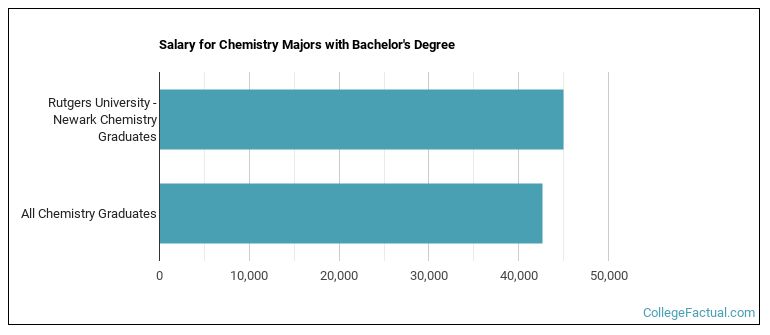
During the 2022-2023 academic year, part-time undergraduate students at Rutgers Newark paid an average of $1,054 per credit hour if they came to the school from out-of-state. In-state students paid a discounted rate of $441 per credit hour. The average full-time tuition and fees for undergraduates are shown in the table below.
| In State | Out of State | |
|---|---|---|
| Tuition | $13,674 | $32,436 |
| Fees | $2,912 | $2,912 |
| Books and Supplies | $1,391 | $1,391 |
| On Campus Room and Board | $15,060 | $15,060 |
| On Campus Other Expenses | $4,372 | $4,372 |
Learn more about Rutgers Newark tuition and fees.
Of the 11 chemistry students who graduated with a bachelor's degree in 2021-2022 from Rutgers Newark, about 55% were men and 45% were women.
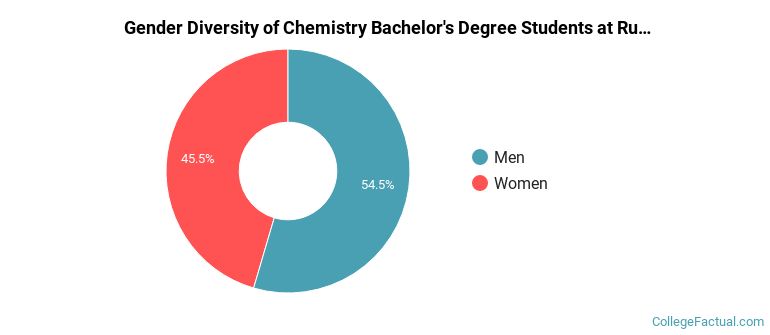
The following table and chart show the ethnic background for students who recently graduated from Rutgers University - Newark with a bachelor's in chemistry.
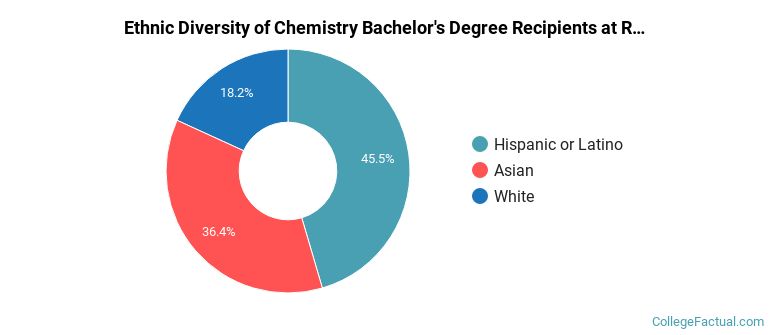
| Ethnic Background | Number of Students |
|---|---|
| Asian | 4 |
| Black or African American | 0 |
| Hispanic or Latino | 5 |
| White | 2 |
| Non-Resident Aliens | 0 |
| Other Races | 0 |
Rutgers Newark does not offer an online option for its chemistry bachelor’s degree program at this time. To see if the school offers distance learning options in other areas, visit the Rutgers Newark Online Learning page.
In the 2021-2022 academic year, 3 students earned a master's degree in chemistry from Rutgers Newark. About 33% of these graduates were women and the other 67% were men.
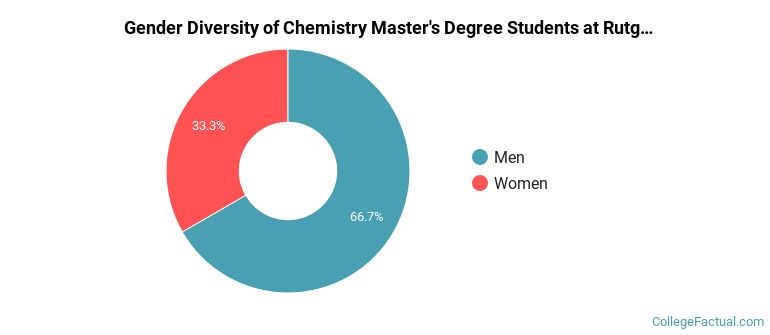
The majority of the master's degree graduates for this major are black or African Americans. About 67% of grads fell into this category.
The following table and chart show the ethnic background for students who recently graduated from Rutgers University - Newark with a master's in chemistry.
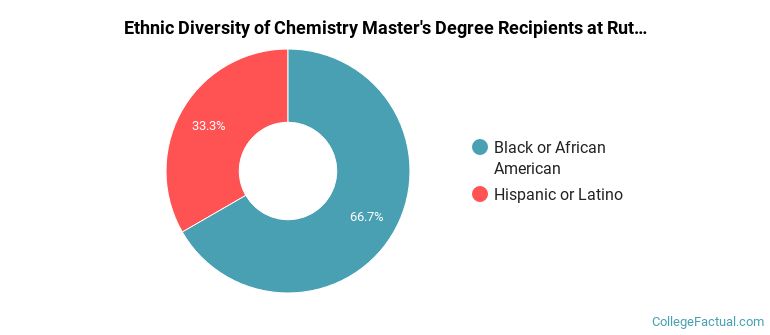
| Ethnic Background | Number of Students |
|---|---|
| Asian | 0 |
| Black or African American | 2 |
| Hispanic or Latino | 1 |
| White | 0 |
| Non-Resident Aliens | 0 |
| Other Races | 0 |
Take a look at the following statistics related to the make-up of the chemistry majors at Rutgers University - Newark.
| Related Major | Annual Graduates |
|---|---|
| Physics | 6 |
| Geological & Earth Sciences | 1 |